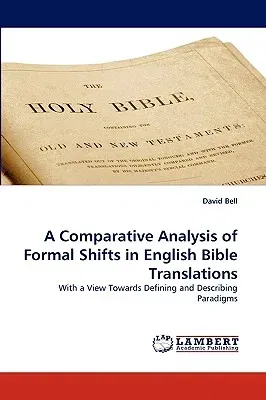David Bell
(Author)A Comparative Analysis of Formal Shifts in English Bible TranslationsPaperback, 5 June 2010

Qty
1
Turbo
Ships in 2 - 3 days
In Stock
Free Delivery
Cash on Delivery
15 Days
Free Returns
Secure Checkout
Print Length
552 pages
Language
English
Publisher
LAP Lambert Academic Publishing
Date Published
5 Jun 2010
ISBN-10
3838316835
ISBN-13
9783838316833
Description
Product Details
Author:
Book Format:
Paperback
Country of Origin:
US
Date Published:
5 June 2010
Dimensions:
22.86 x
15.24 x
3.12 cm
ISBN-10:
3838316835
ISBN-13:
9783838316833
Language:
English
Location:
Saarbrucken
Pages:
552
Publisher:
Weight:
798.32 gm

